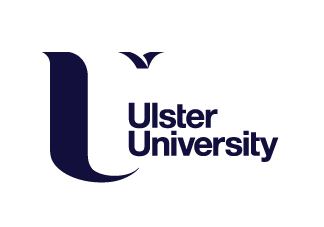This course focuses on biomedical engineering, focusing on developing new medical technologies. It prepares students for employment in medical devices, pharma, and biotechnology sectors, as well as PhD studies or research positions. The course draws on internationally recognized research in areas like Tissue Engineering, Bioceramics, Medical Electrodes, and Drug Delivery. The school has established several medical device spin-out companies and has an outstanding 94% of its research output as world-leading or internationally excellent. The course is based in the internationally recognized NIBEC centre, the longest-established Biomedical Research Centre in Ireland, which houses sophisticated nano-fabrication, biological, and characterisation equipment. The NIBEC is staffed by an internationally recognized team of researchers and academics working at the interface of bioengineering and nanotechnology.

Ulster University
MSc Biomedical Engineering
Entry Requirements
PgDip - Normally, an Honours or non-Honours degree or postgraduate diploma/certificate in a relevant engineering, technology or science discipline. In exceptional circumstances, where an individual has substantial and significant working/industrial experience, a portfolio of written evidence may be considered as an alternative entrance route. It is possible to transfer onto the MSc version of the course after successfully completing the PGDip.
MSc - Normally, a second class honours degree or better in a relevant engineering, science, physics or technology discipline. Or a postgraduate diploma/certificate in a relevant engineering or technology discipline. In exceptional circumstances, where an individual has substantial and significant working/industrial experience, a portfolio of written evidence may be considered as an alternative entrance route.
The minimum requirement for this course is Academic IELTS 6.0 with no band score less than 5.5. Trinity ISE: Pass at level III also meets this requirement for Tier 4 visa purposes.
Career Prospects
The program aims to make students more employable in the medical device, pharma, and biotechnology sectors upon successful completion. It also offers opportunities for students to pursue academic careers or research through a PhD program. Part-time students can participate in work-based learning modules, with close links to the medical device sector. Students can learn directly from industry in an optional semester 2 module, including industrial guest speakers. During the dissertation, students will undertake original research and be mentored as part of an existing research group. The school's research facilities include electron microscopes, cell biology, tissue engineering, nanoparticle and cardiology laboratories, and a 3D printing suite. The program is accredited by the Institution of Engineering and Technology (IET) for meeting the academic requirement for registration as a Chartered Engineer.
Course Details
Core Modules
Biomaterials 1
Bioinstrumentation
Tissue Engineering
Research Methods & Facilities
Composite Engineering
Mechanics of Sheet Metal Forming
Embedded Systems RTOS Design
Digital Signal Processing
Micro- & Nano-Scale Devices
Nanoscale Analysis & Metrology
Manufacturing systems
Work based learning 1
Optional Modules
Finite Element Analysis and Computational Fluid Dynamics
Quality Improvement
Entrepreneurship (Engineering)
Work based learning 2
Computer Aided Engineering for Managers
Polymer Technology
Process Product Optimisation
Masters Dissertation
Are you ready to start building your future?
Contact our admission counseller and get a free consultation.













